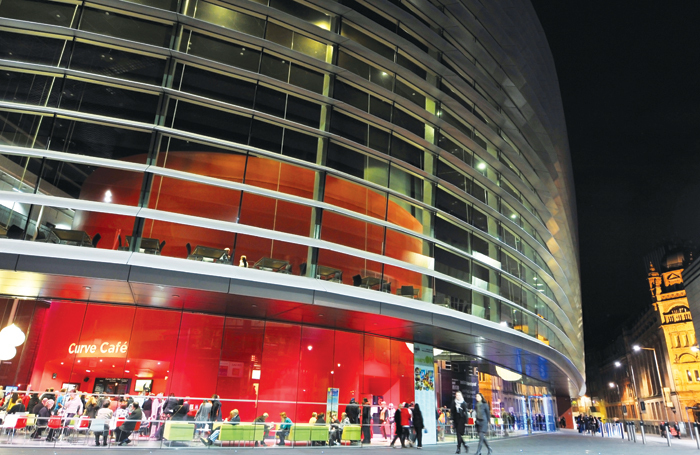Coronavirus: Theatres warn of permanent closures and cuts to jobs as shutdown begins
Industry leaders have warned of the “perilous and uncertain future” faced by the theatre industry, with some cautioning that venues will shut permanently as the impact of closures around the country is felt.
The Stage understands theatre companies are already making redundancies, as they move to a skeleton staff in a bid to manage the period of uncertainty after venues closed with immediate effect following yesterday’s advice from Boris Johnson.
A theatre boss from a major regional venue told The Stage they feared for the future of smaller venues around the UK, who do not have the reserves to cope with the financial impact that organisations will suffer because of the closures.
Another producer warned that the closures will “set theatre back years”.
Leicester Curve’s chief executive Chris Stafford and artistic director Nikolai Foster warned that events had “catapulted our already fragile industry into a perilous and uncertain future”.
“The impact of Covid-19 has already been immense; the timing and wording of yesterday’s statement by the prime minister was given without any consideration for the thousands of actors, musicians, administrators and crews preparing for shows up and down the country,” they told The Stage.
“Many of our theatres are charitable organisations, dependent on ticket income and without this, there is only so long we can survive. It is already clear the entire theatre industry is pulling together and through our shared efforts and in theatre’s spirit of collaboration, we will emerge from these challenging times.
“We made a vow yesterday that we will do whatever it takes to ensure the long-term survival of Curve and we will work harder than we have ever done before, to ensure our theatre in Leicester lives long into the future and that we are able to serve our audiences and communities for generations to come,” they added.
Meanwhile, English National Ballet artistic director Tamara Rojo warned that box office takings for the company had already dipped 41%, its lowest since 2011.
She told Radio 4’s Today Programme that, as theatres had not been told to close, the company could not go to its insurance company and claim compensation.
“We do need clear pathways. Ballet companies, theatres, freelances, who are a huge part of our economy, need access to cash flow now but also later. It’s not as easy as going back on stage and switching on the lights. If you have dancers who cannot train for three months they need to retrain, rehearse.
“We need investment and we need clarity,” she said.
Rojo said Denmark has been “very clear and very fast in giving access to freelances to clear paths to access funds, but also for artistic institutions”.
“We could look at other European countries that have been really proactive in supporting their industries, she said, adding: “We risk losing one of the most important industries in the UK, one that is growing more than any other. There is so much that we provide aside from employment, so it is important that this industry continues to thrive, flourish and be healthy.
Meanwhile, Creative Industries Federation chief executive Caroline Norbury warned that the effects of the closures could be devastating.
“Public safety remains the top priority for everyone in the creative sector. However, these measures have the potential to devastate the UK’s theatres, museums, cinemas, venues and other cultural spaces reliant on audiences, visitors and participation, as well as the huge array of creators and freelances who work within these industries,” she said.
David Hutchinson, chief executive of theatre company Selladoor Worldwide, said the “wellbeing of our customers, staff and communities is the priority” but said his business was now “faced with the hard reality of an indefinite period of no income whilst trying to maintain considerable overheads as a production house and theatre operator”.
“The government’s directive has to be matched with urgent support to help the industry get through an unprecedented difficult period, with a significant injection of funds required to enable both organisations and artists alike to bear the considerable economic impact of the Covid-19 outbreak. We have seen headlines about billions in support for airlines and rail companies, but the artistic community (so often overlooked) does not have the same resources to rely on in these times of need,” he said.
Hutchinson also expressed concern about the mental wellbeing of friends and colleagues, and appealed to everyone “to reach out to their contacts in the sector”.
“Mental health and depression can be a killer too, and this is going to put unimaginable pressure, stress and anxiety on many individuals,” he said.
Coronavirus: breaking news and live updates as the theatre industry responds
More about this organisation
Production News
Recommended for you
More about this organisation
Production News
Recommended for you
Most Read
Across The Stage this weekYour subscription helps ensure our journalism can continue
Invest in The Stage today with a subscription starting at just £7.99
















